‘I could’ve stayed longer as Bangladesh coach’
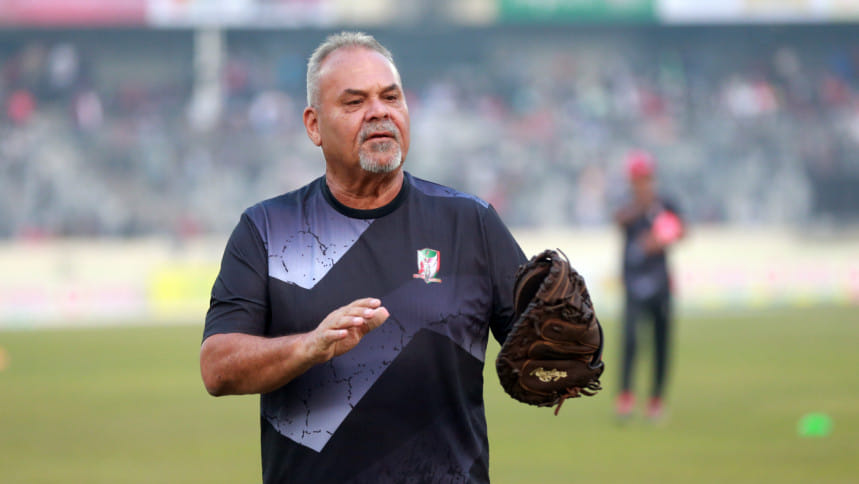
Former Bangladesh coach Dav Whatmore was more like an angry young man during his stint as the Tigers' coach. This time he is in charge of Fortune Barishal as technical director and shared his views on coaching, the Tigers' success curve and how he feels about Mashrafe Bin Mortaza's participation in this year's BPL in an interview with The Daily Star's Abdullah Al Mehdi.
The Daily Star (DS): Did you feel you wanted to stay longer?
Dav Whatmore (DW): Well I was naïve. I was in two minds and had a real opportunity to be involved with the Indian national cricket team. You know, I was in for that. Well, that's a long time ago and it didn't work out. But, you know, subsequent positions were good for me too. Whilst it would have been nice to stay a bit longer, I also shaped my career pretty well. It was a time when I was still very much enjoying being in Dhaka and coaching the team.
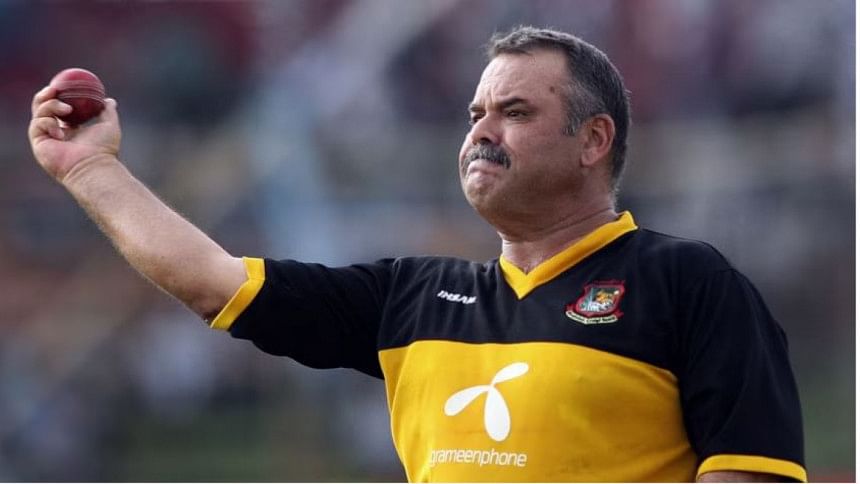
It was sad, sorrowful, but I was leaving hoping to improve like anybody who would get a promotion in their job. But it didn't quite work out for the reason that I left. But it, in the end, became also a good thing for me to, you know, take on a different role at the NCA and BCCI and from there on I also continued my coaching, so it sort of worked out in the end, but you know, I could easily have stayed.
DS: What was the transition like for you coming in as an Australian?
DW: Yeah, it was still relatively early in my whole cricket career, my coaching career and I was sort of learning all along the way. To a certain degree, it was a slight change in culture, but in other ways, the boys are similar to other subcontinent players.
They're really keen to get ahead of themselves. They hadn't won hardly anything before I arrived in 2003, so, I had a bit of an advantage from that point of view to be able to build a team and give a bit of confidence, that type of thing, so it was a slight change of culture.
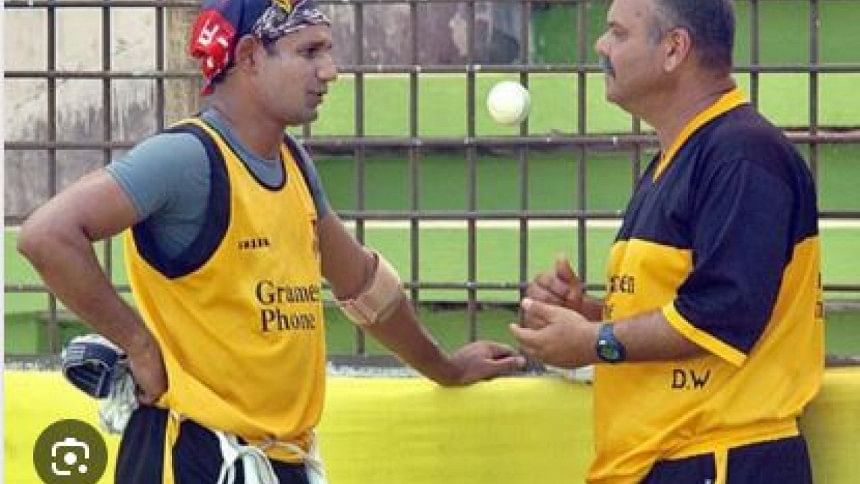
DS: You coached a side that won the World Cup. What differences did you find between working in Sri Lanka and Bangladesh?
DW: The World Cup winning team was in 1996 and I came in 2003. There was another four years with Sri Lanka from 1999 to 2003. So, you know, that World Cup victory was obviously a very memorable time in my life.
But as a cricket coach, I feel I'm a lot better now than I was way back then. I had four other years with Sri Lankan cricket before I came to Bangladesh. I was really keen to work with the players and try …and, it's the players that make the coach.
It's very nice of everyone to recognise me and whatever but at the end of the day, it's the players. If the players don't do the business on the field, then the coach doesn't really get much of the accolades either. So, I'm very mindful that the players should get the bulk of the credit and they worked pretty hard from time to time in 2003 through to 2007 and got their reward.
They were supported well. The cricket board also was very supportive. I had a good selection committee, had good support staff and the players and the cricket board, I'm sure they felt there was a real duty of care from us the coaching staff and medical support. So, it gelled well.
DS: Back in your day how was the selection panel?
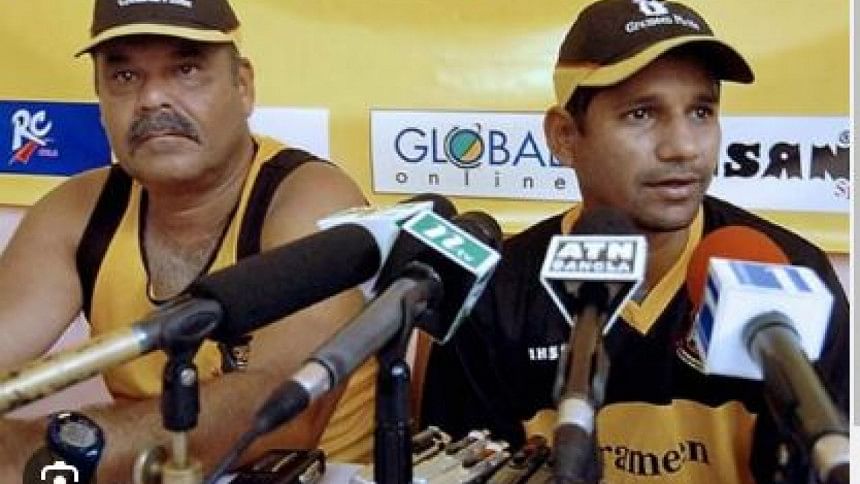
DW: We had Faruque [Ahmed], Athar [Ali] and [Golam Nowsher] Prince. They had good cricket knowledge. They had played the game. They supported me as well.
DS: They had the freedom to work too?
DW: Yeah. It wasn't hundred percent every time, particularly towards the end of my stint. They had certain views and I had also my views. But by and large, I was very lucky to have that group of people. Selection committees in any team, in any country is very, very important. So, you know, I've I was lucky enough to have a good one there. I was lucky enough to have a really good selection committee before the World Cup in 96. But I've also had experience of difficulties with selection.
DS: Because they were strong characters?
DW: Well I don't want to say strong. Obviously, they have a vote, so they're pretty strong but they also had their strong views on who they wanted to play in the squad or in the team. And it won't always go your way, but it was an experience, good and bad, over the years.
DS: In 2004 they started the HP programme and within a year you got a few players like Mushfiqur Rahim, Shakib Al Hasan. What do you feel about that?
DW: The wise men, who were funding more on the development, did a real good job. And that continued. And you can see these younger players that have been promoted and eventually playing for their country in the senior men's team is a product of that. Because domestically, particularly in those days, it wasn't so competitive. So, a lot of money was put into the development arm of the BCB and it started to produce results.
DS: Do you feel that Bangladesh should have set a higher standard after that 2007 World Cup?
DW: It's hard to say. Other teams also improved. The conditions that they have played will make a difference. So, yeah, I would think there are a lot of Bangladeshi supporters who would probably hope the graph will go up, but it's not easy.
DS: Do you wish to come back as a national team technical director for Bangladesh national team?
DW: I don't wish to take anybody's job. It's difficult for me to comment on that. So I, I'd rather not get into that.
DS: How has it been catching up with some of your players from back then?
DW: It's always, always good. You know, they're always fond memories. It's nice to, you know, to reunite from time to time because it's been many years since I've seen them.
DS: How are the likes of Tamim Iqbal, Mushfiqur Rahim and Mahmudullah Riyad coping with the new Dav Whatmore?
DW: Well, I'm the technical trainer, I'm not the coach, but I think they're very happy. I mean I haven't really changed my approach.
DS: Are you a little calmer as a person from back then?
DW: Oh, yeah. I am, but you know, I think a coach needs to be a number of people, a number of different types.
It's very much a caring parent, you teach players, but there are times when you have to get the stick out. And the players have to allow the coach to do that, otherwise, the coach is not doing his job. As long as when it's time to give bamboo, it's the correct time. Because if it's not, and it's done too often, then it loses its effect.
Players will say, here we go again, you know. But really, if you are, you know, careful when you do it, it has a big effect. But you have to do that at the right time. There is a right time.
DS: Mashrafe Bin Mortaza has been in the limelight this BPL due to his fitness problems and many have even blamed the franchise. Where do you stand in this regard?
DW: It's still early days… All I can say is if his presence on the field has a very positive knock-on effect on the other 10, clearly the owners like him there. If it's a very positive knock-on effect, then there's some advantages of having him, you know, physically on the field leading them. But yeah, you always prefer the leader to be able to contribute as much as possible as well.

 For all latest news, follow The Daily Star's Google News channel.
For all latest news, follow The Daily Star's Google News channel. 

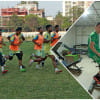
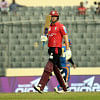
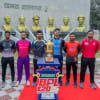
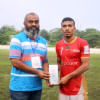



Comments